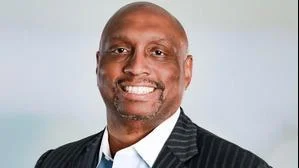Illinois State Rep. Tony McCombie | repmccombie.com
Illinois State Rep. Tony McCombie | repmccombie.com
House Minority Leader Tony McCombie is calling out Illinois Democrats for not repaying a state debt sooner.
While she is pleased to know that the debt will be repaid, McCombie pointed out this could have been done earlier.
“The article has it right... the "Repayment of the loan is hardly historic or monumental. It should have been done long ago with the federal money Illinois is awash in. Illinois paid one of the bills it owes, and it paid late,” McCombie said on Facebook. “As a matter of fact.. the penalty of $114M was only because the 'agreed bill process' couldn't come together before the Federal deadline of November 9th. Please don't get me wrong... I am glad the debt is finally going to be paid, but it will cost employers more because of the overall decisions made by government! PS... we still have not seen the actual language of the bill coming to the floor.”
The debt was owed from Illinois’ unemployment insurance trust fund to the federal government. Wirepoints said the bill repayment was all ceremony, a "political theater — spin and fiction — with lawmakers slapping themselves on the back for yet another supposed triumph of fiscal prudence.” Mark Glennon wrote in Wirepoints that “Illinois has been derelict on repaying the loan, letting interest costs rack up, but it had no trouble finding election year goodies, namely the rebates on income and property taxes, the suspended grocery sales tax and delayed gasoline sales tax. The loan repayment was made possible by federal bailout money that should have been used for that purpose long ago.” Glennon added that “it by no means solved the problem with its unemployment trust fund.” Illinois was only a handful of “fiscally troubled” states that had not paid off the debts. The others are California, New York, and Connecticut.
The 13th annual Financial State of the States report by Truth in Accounting found Illinois is at the bottom of states when it comes to fiscal health. The state received an “F” grade for its state finances. The only two states in worse condition were New Jersey and Connecticut. Truth in Accounting said Illinois only had about $39 billion to pay $250 billion worth of bills, which amounts to $49,500 per taxpayer. “Those are subject to the same types of market fluctuations that we who have our own private pension funds, the governments are the exact same,” Christine Kuglin, director of the Truth in Accounting Project at The University of Denver, said, according to The Center Square. The state’s pension debt liabilities decreased by $12.1 billion in 2021 after several years of stock market gains. For each dollar of expected retiree health benefits and guaranteed pension payments, Illinois has only allocated 45 cents and 1 cent for retiree health benefits. If benefits and financing are not altered, future taxpayers will be compelled to pay for the underfunded programs.
Illinois has long struggled to bridge a gap in its long-term budget caused by generous benefits given to government employees leading to the worst pension crisis in the nation. The State also has the second-highest property taxes in the country. As such, Illinois has one of the worst over-fiscal outlooks in the nation, something the ruling party and Gov. J.B. Pritzker appear to have left out of their comments following the release of a five-year budget. The governor’s comments were taken at face value by many media outlets that did not provide analysis. Others have noted the projection is based on a state budget that Sheila Weinberg of Truth in Accounting said the state is not telling the truth about its financial standing. "The people continue to be misled by the state's finances," Weinberg told The Center Square. "Can they knowledgeably participate in their government if they are not being told the truth about their finances?"






 Alerts Sign-up
Alerts Sign-up